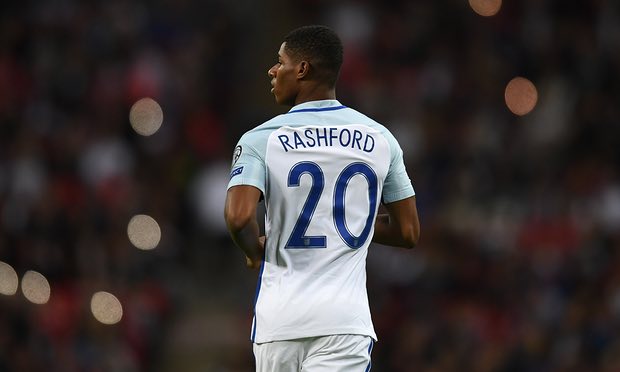London – Despite Saturday night’s showpiece in Cardiff, the season is not quite over yet. A round of internationals can be found tagged on almost apologetically next weekend, with England involved in a World Cup qualifier against Scotland in Glasgow on Saturday before a friendly in France takes place three days later.
A return to France will inevitably evoke memories of another tired tournament campaign coming to an even more cataclysmic end than usual with defeat by Iceland, though it might be more positive to reflect on how much has changed since then. When England take on Scotland it will be a year since Euro 2016 kicked off, with France overcoming a stubborn Romania through a late Dimitri Payet goal. Payet was still a West Ham player at the time, and when he scored his next goal a proud Slaven Bilic climbed on the desk in the ITV studio set to express his excitement.
On 10 June last year Roy Hodgson was still England manager, about to be frustrated the following day by a 1-1 draw with Russia, Wayne Rooney was still captain, Gareth Southgate was in charge of the under-21s and Sam Allardyce had last been seen dancing the night away in Marbella in celebration of Sunderland’s Premier League survival.
When it all began to unravel last summer things happened so fast it is hard to believe England are now on their second manager since the tournament ended, and even more ludicrous to consider that Allardyce has had three different employers in the same timeframe, doing as solid a job for Crystal Palace as he had done for Sunderland but crucially bungling the big opportunity in the middle. It seems odd that Allardyce is now ostensibly out of the game, his England potential untested, while a manager with a far less impressive club record is learning on the job, though at least Southgate’s enthusiasm for keynote speaking, pints of wine and making a large amount of money for just a few hours’ work is unlikely to prove his undoing.
Results might, but so far England have been making smooth progress. At the half way stage in World Cup qualifying they are four points clear at the top of Group F, the only side still unbeaten, with two of the trickier away trips – Slovakia and Slovenia– already out of the way. In theory, those games ought to prove the most difficult in what is far from the toughest of groups, though Scotland away will always be uncomfortable for England, even if Gordon Strachan’s side are in fourth place with two wins from five games. This could reasonably be regarded as Southgate’s biggest test to date and that should be borne in mind when evaluating the quiet yet determined way in which the manager has gone about his job.
Perhaps dropping Rooney was an easy decision, given his limited number of games for Manchester United and his relatively muted impact when played, though Southgate made sure he left the door open for the future. It is possible that Rooney might find some form with a run of games for a different club next season and should that happen there would be no obstacle to a return.
Southgate would simply do the sensible thing, just as he did when recalling and then keeping faith with Jermain Defoe. Despite the age of each player and the perceived closeness to retirement Defoe has been playing more games than Rooney and proving more effective on the pitch so he deserves to be in the squad.
At the other end of the age scale Southgate was right to stick to his guns over Marcus Rashford, who made it to Euro 2016 and does not need a return to the under-21s after establishing himself in United’s first team. José Mourinho did not want his player with the under-21s for a tournament in Poland anyway but, as Southgate says, the decision on internationals who could still be important parts of the England setup in 10 years’ time has to be that of the England manager. “Somebody has to protect him, somebody has to manage the development of a young player, and that has to be my call,” Southgate pointed out.
“Marcus is in the senior squad on merit, and has been for a year. His performances warrant him being in the senior squad. He could still have gone with the under-21s afterwards but that would not be right. He is a 19-year-old player who has had an exceptional season but by that point he will be close to 60 matches.”
Southgate is also correct in saying Rashford is not the only England forward in good form – Harry Kane, Jamie Vardy and Defoe have had strong seasons – and with Dele Alli, Adam Lallana and Raheem Sterling to choose from in the support positions Scotland must be quite worried about how to contain the English attacking threat.
With few exceptions, now that the obligation to use Rooney in the starting lineup has been sidestepped, England travel to Scotland with a young yet experienced squad, full of players who have been performing consistently well for their clubs. As such times managing a national team can look simple, and perhaps it is, though there is an art to keeping things simple and not being distracted by peripheral considerations. Allarcyce could tell Southgate all about that.
Most of the previous England managers would tell him what he already knows, that he will stand or fall by tournament performances rather than results in qualifying. Yet looking back at what happened to his immediate predecessor Southgate can take heart. At least he is likely to get to a tournament.
The Guardian Sport
